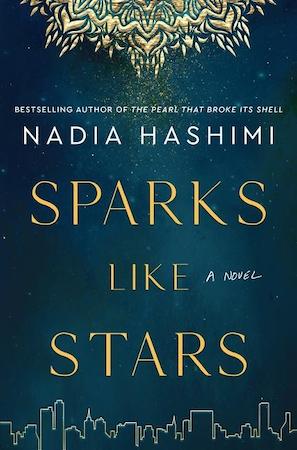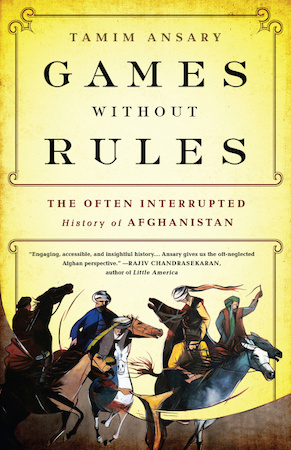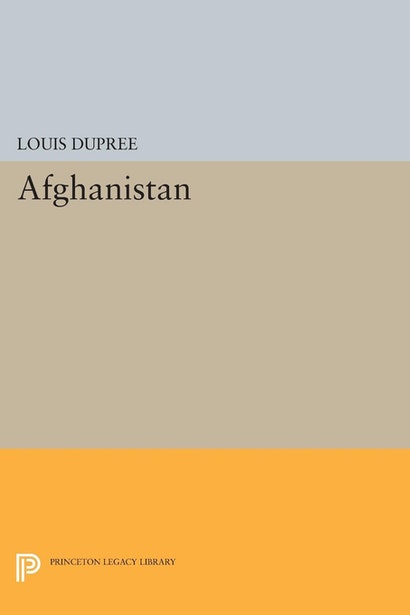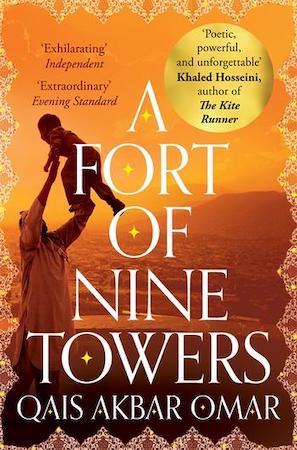If you enjoy reading Electric Literature, join our mailing list! We’ll send you the best of EL each week, and you’ll be the first to know about upcoming submissions periods and virtual events.
On August 15th, the Taliban took control of Kabul and assumed the authority they’d claimed to hold from their exiled posts. Afghanistan had been free, almost completely, of their brutal regime for 20 years. We spent a week watching hordes of people rush to the Kabul airport in the hopes of escaping a bleak future, one that would have been a return to the past.
The past is now the future, time and politics being circuitous creatures. I typically describe Rahima, a protagonist from my first novel, The Pearl That Broke Its Shell, as a girl living in post-Taliban Afghanistan. I will have to find a new name for those years. My second novel, When the Moon Is Low, followed the journey of a widowed mother and her three children as they fled a Taliban-controlled homeland and sought refuge on foreign shores. It was called timely then. It is timely now.
I was recently asked if I would write a story about what the Afghan people are experiencing now, in this fresh torrent of hardship. I am in no rush to step into these puddles of pain. In so many ways, I’ve already written this story. I’ve been pulled away from writing anyway by the urgencies on the ground, by the possibility that if I can just deliver the right names to the right inbox, I might re-write someone’s fate.
Besides, I’m too angry now as I listen to suited men peddle narratives that will save their political careers and their campaign dollars, instead of Afghan lives. They are a unique breed of storytellers, spinning fiction out of talking points and diverting attention from unsettling truths. They talk about how much money was spent building Afghanistan without mentioning the bulk of it fattened the profit margins of American corporations. They do not discuss the strange geopolitical bedfellows or the fact that the Taliban have morphed from friend to foe and back again, like a cliched twist in a drama series. Drug traffickers and corrupt politicians have made their way to the CIA payroll. The United States has had a presence in Afghanistan well before 2001, a presence I touched on in my latest novel, Sparks Like Stars.
The fiction I write is inspired by truths and in Afghanistan, perhaps more so than anywhere else in the world, truth is stranger than fiction. In a previous reading list, I offered a few books that centered the voices of Afghan women writing across genres. Here are a few non-fiction books that will make you squirm, protest, and ache. These are growing pains, dear readers, and we must endure them if we intend to be good neighbors and true allies.
No Good Men Among the Living: America, the Taliban, and the War through Afghan Eyes by Anand Gopal
A Pulitzer Prize finalist, No Good Men Among the Living traces the rippling effects of America’s war on terror on three Afghan individuals: a Taliban fighter, a housewife with no good options, and a US-backed warlord. This inside-out narrative offers an absorbing, enlightening and startling perspective of the conflict that highlights the avoidable missteps that resulted in America’s longest war.
Games Without Rules: The Often Interrupted History of Afghanistan by Tamim Ansary
Historian Tamim Ansary chronicles Afghanistan’s tumultuous past and failed interventions from 1840 to today through an insider’s lens. His book takes an incisive look into the five “Great Powers” that tried, with varying levels of success, to invade Afghanistan over the past 200 years. Written in an accessible manner, without complicated jargon, Ansary starts with the old Afghanistan—a land of self-governing village republics and tribes—and then zooms out to delve into the turbulent 21st-century period of factions, tribes, and outside forces jostling for power.
This is a great starting point for readers curious about the country but don’t stop here. In addition to his non-fiction work, Ansary, a stellar and versatile writer, has also written a memoir and novels.
Afghanistan by Louis Dupree
Published in 1973, Louis Dupree and his wife Nancy—both sociologists and renowned experts on Afghanistan—made immense contributions to the archiving of Afghanistan’s history. This book is a must-read for anyone seeking to understand the history, culture, and politics of both ancient and modern Afghanistan, pre-Soviet invasion. The book also dives into the disastrous and reverberating consequences of British imperialism in the region and false borders that geographically separated the Pushtun people in half. Nancy Hatch Dupree, director of the Afghan Center at Kabul University, lived in Kabul until her passing in 2017.
A Fort of Nine Towers by Qais Akbar Omar
Omar’s coming-of-age memoir offers an intimate view into the story of a family fleeing a battered homeland, including unforgettable nights spent by the Buddhas of Bamiyan. His writing is soulful and fluid, a reflection of Afghanistan’s poetic culture. This isn’t an analysis of geopolitical dynamics, but it is a revelation about the devastating impact of geopolitics and foreign policies on the everyday lives of Afghan families.

Ghost Wars by Steve Coll
Winner of the 2005 Pulitzer Prize, every page of this book is packed with distressing discoveries. Coll’s deep dive reveals the CIA’s fingerprints on the conflict in Afghanistan and the roots of Islamic militancy. Take a break and then move on to Directorate S: The CIA and America’s Wars in Afghanistan and Pakistan by Coll to follow the tangled web post-9/11.
The Wrong Enemy: America in Afghanistan, 2001-2014 by Carlotta Gall
Gall’s coverage of Afghanistan and Pakistan over the past decades comes together in this book. She reported from the frontlines during the Soviet withdrawal in Afghanistan and she was there to witness the US Forces defeat the Taliban. In her absorbing personal narrative of the war, interspersed with intimate accounts of the struggles of Afghan citizens, she pulls back the curtain on the elements that have subverted the efforts to achieve peace and progress in Afghanistan.
The Afghanistan Papers by Craig Whitlock
Award-winning investigative journalist Craig Whitlock of the Washington Post interviewed over 1000 individuals and, through court order, obtained internal government documents not intended for public viewing. The release date for the culmination of this research was August 31st, coinciding with the final day of the American military withdrawal from Kabul. As Americans, especially veterans of the war in Afghanistan, reflect on the end results of our interventions there, Whitlock’s revelations become all the more devastating. The euphemistic language used by three presidential administrations was meant to distract and deceive from a mission that had become less and less defined with every passing year.

Land of the High Flags: Afghanistan When the Going was Good by Rosanne Klass
In the 1950s, Rosanne Klass spent two years teaching English to young boys in rural Afghanistan. In this memoir, she records her observations and interactions with people and a culture she had little understanding of before she, rather reluctantly, stepped foot on Afghan soil. Originally published in 1964 and reissued in 2007 with a fresh author’s note, this textured memoir takes a reader back in time to meet Afghanistan during a time of peace. Though packed with information, it is not an academic work. It is a travel diary rich in detail and personal perspective. Klass herself wrote that the book was only meant “to tell how things were for one particular person at one particular time.”







